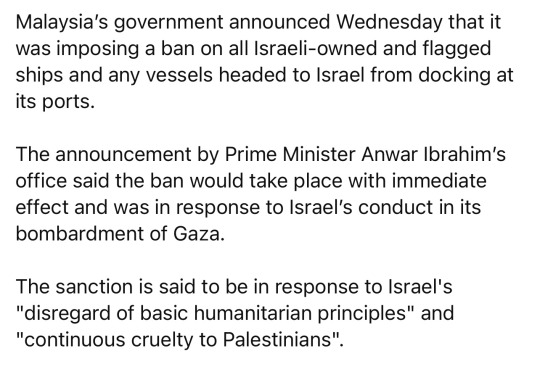#Malaysia economy
Explore tagged Tumblr posts
Text
Upward revision of GDP growth forecast with sustained growth prospects ahead
Apex Research has upgraded Malaysia’s 2024 GDP growth forecast to 5.2% from 4.1%, while maintaining the 2025 forecast at 4.6%. The revised outlook reflects stronger domestic spending, improving labor market conditions, progressive income growth, ongoing investment projects, a global technology upcycle, and recovering tourism. Political stability has improved, supporting economic reforms and…
0 notes
Text




Hetalia stuff I did~ (mostly sg hahahaha)
Haven’t had the time recently to complete full illustrations so I can only give doodles 🫠



…ok yeah I can’t believe I became a fan of my own country personification
I have so many thoughts on this loser it’s insane



#the economy is producing#hetalia#hws singapore#hws malaysia#hws philippines#hws indonesia#aph thailand#aph vietnam#aph hong kong#hws hong kong#hws thailand#hws vietnam#hws asean#dear lord they have way too many tags#the msg stuff can be taken as familial or shippy
58 notes
·
View notes
Text


#Malaysia 🇲🇾#Gaza#Forever Palestine 🇵🇸#News#Economy#Sanctions#Bastard Child of the US 🇺🇸 and the West 🇪🇺#Illegal Regime of Isra-Hell#west’s Backed Terrorist Isra-Hell
5 notes
·
View notes
Text
body scrubber
#body scrubber#back body scrubber#eco friendly#zero waste#vegan#made with love in malaysia#organic#eco lifestyle#natural#skincare#life#ecofriendly#economy#ecology#loofah
2 notes
·
View notes
Text
people begging for sepang to come back on the calendar is making me sad bc IK!!!!! i want sepang back i want to watch a race at my home circuit but unless the government does something with our current economy and lets us afford a contract with the fia it is not coming back anytime soon
#f1 is less popular than motogp in malaysia bc of two things#1) got so many mat rempit here thinking they're marc marquez or fabio quartararo (theyre not!)#2) ticket price difference btwn motogp n f1 is huge#it could reach like 2k for a f1 grandstand probably#whilst motogp tickets r a chill 200~500#which is a lot more affordable#tldr: sepang is not coming back unless govt hustles for that economy 📈 n lowers the ticket prices
5 notes
·
View notes
Text

🎄✨"Midweek vibes + holiday blessings! 🎄✨ Let's make this Wednesday a joyful prelude to the Christmas season. Spread the cheer, stay focused, and keep the festive spirit alive! 🎅🎁 #WednesdayVibes #ChristmasBlessings #HolidaySeason #bangladesh #india #uae #uk #Malaysia #canada #singapore #usa #canada #philippines #singapore #thailand #china #hongkong #nepal #maldives #bahamas #caribbeanIslands #Jamaica #southkorea #bermuda #europe #japan
@bangladesh @india @uae @uk @Malaysia @canada @singapore @usa @canada @philippines @singapore @thailand @china @hongkong @nepal @maldives @bahamas @japan @caribbeanIslands @Jamaica @southkorea @bermuda @europe
#@bangladesh @india @uae @uk @Malaysia @canada @singapore @usa @canada @philippines @singapore @thailand @china @hongkong @nepal @maldives#celebrities#ecommerce#investing#sales#branding#founder#startup#entrepreneur#economy#accounting
1 note
·
View note
Text
World Bank (WB) sees strong Philippine economic growth in 2024 and 2025
By citing positive factors in its latest report, the World Bank (WB) raised its Philippine economic growth forecasts for 2024 and 2025, according to a BusinessWorld news report. To put things in perspective, posted below is an excerpt from the BusinessWorld report. Some parts in boldface… THE World Bank (WB) has raised its economic growth forecasts for the Philippines for this year and in 2025,…
#Asia#Bing#Blog#blogger#blogging#business#business news#BusinessWorld#Cambodia#Carlo Carrasco#China#economic#economic dynamism#economic forecast#economic growth#economics#economy#Economy of the Philippines#finance#geek#Google#Google Search#Indonesia#investment#Japan#jobs#journalism#Laos#Malaysia#money
0 notes
Text
Swiss court convicts two executives of embezzling $1.8bn from 1MDB | Corruption News
Court sentences PetroSaudi executives to six and seven years in Malaysia investment fund fraud case. The Swiss Federal Criminal Court has convicted two executives from an oil exploration company for embezzling more than $1.8bn from Malaysia’s state investment fund 1MDB. The verdict on Wednesday was the latest episode in the 1MDB scandal, a complex tale of international corruption that has…
0 notes
Text
Economy 101: BlackRock Investment Company - Critical Information
BlackRock, the world’s largest investment manager, has a diverse portfolio that includes significant stakes in some of the largest companies globally. As of early 2024, their top equity holdings encompass leading tech firms such as Apple, Microsoft, Amazon, and Google. Additionally, it owns several investment management and technology platforms, having acquired companies like Merrill Lynch…

View On WordPress
#BlackRock#Business#Economy#Financial Services#Global#History#Investment#Investment Company#Malaysia
0 notes
Text
Economic Slowdowns, Geopolitical Tensions, and Industry Shifts
What if the global supply chain you rely on every day is more fragile than you think? The latest episode of the Chain Reaction Podcast dives into this very question, tackling the pressing issues shaking up supply chains worldwide. From China’s economic slowdown and the troubles in their property market to the escalating protectionism impacting trade rules, this episode equips you with a nuanced…
#Airfreight#Boeing#Business#China#Complexity#Economic Slowdowns#economy#EU#EV#Geopolitical Tensions#Germany#Global Supply Chains#Industry Shifts#Malaysia#News#strikes#Supply Chains#Technology#US#Volatility
0 notes
Text
Remarkable growth of trade performance with exports up by 12.3%
Malaysia’s trade performance showed remarkable growth in July 2024, achieving an 18.3% year-on-year increase, the fastest in 21 months. The total trade value for July reached RM255.88 billion, driven by strong exports and imports. Exports rose by 12.3% to RM131.15 billion, while imports surged by 25.4% to RM124.73 billion, resulting in a trade surplus of RM6.42 billion. Read more Business…
0 notes
Text
The best thing that can be said about Thailand and Malaysia wanting to join BRICS is that it won’t cost them anything. They won’t gain much, either.
The idea of lumping Brazil, Russia, India, China, and South Africa together began as a thought experiment by Goldman Sachs, a way for the bank to parcel its bond portfolio in the advanced developing world. When the idea was taken up by those countries in the late 2000s, it was only as a gentlemen’s club where participants could gather to bemoan why they were apparently dealt such a bad hand by the U.S.-led international order.
Yet, BRICS isn’t a geopolitical club since most members (China and India, for instance) have conflicting interests. If Saudi Arabia joins, it will be seated next to Iran (a new member), its hegemonic rival in the Middle East. This guarantees that nothing of any importance will be discussed at BRICS summits. (How are you going to have a meaningful conversation on energy, for instance, with all these conflicting interests?)
Moreover, Russia, China, and Iran are now staunchly in the same camp of wanting to tear down the Western order. Brazil, India, and South Africa (plus Egypt and the UAE, two new members) are quite content with that order. So, say goodbye to any meaningful conversations about security at BRICS summits.
Economics is the only thing left that the members might actually discuss properly, but BRICS isn’t an economic club either. In an interview with Chinese media last month, Malaysian Prime Minister Anwar Ibrahim seemed convinced that BRICS may one day establish a shared currency that might rival the U.S. dollar. He clearly didn’t listen to the BRICS summit last year when almost the first thing the leaders said was that they don’t want a BRICS currency.
There is the BRICS’ New Development Bank, which has ample funds. But you don’t need to be a BRICS member to access them. Bangladesh and Uruguay are members of the development bank but not the bloc. Moreover, joining BRICS wouldn’t give Thailand or Malaysia much say over how the development bank functions since the founding document says the original five members will always have 55 percent of the total voting power, and almost all of the funds are provided by China.
There’s also BRICS’ Contingent Reserve Arrangement, but, at least for now, Malaysia and Thailand are unlikely to experience short-term balance of payments pressures, and if they did, they are already part of other currency swap arrangements. Moreover, if you’re a reformist-minded leader, like Thai Prime Minister Srettha Thavisin, joining BRICS isn’t even a way of incentivizing your own bureaucracy to implement much-needed structural reforms since there are no structural conditions on membership, hence why Ethiopia, one of the poorest countries in the world, was able to join.
Indonesia took a look at BRICS last year and said, “it’s a no from us.” Argentina said the same after a new president entered office who doesn’t just want to find new means of leeching off others so the country doesn’t have to pay its debts. Saudi Arabia, another country invited to join in 2023, is dragging its feet, well aware that joining might be perceived by the U.S., its security guarantor, as an anti-Western move.
So why do Malaysia and Thailand want to join? There’s probably a good deal of their governments playing up for their local audience. Thitinan Pongsudhirak, someone always worth listening to, argued that this “hasty and misguided move” was intended for domestic consumption, mainly because Srettha has a litany of unfulfilled promises: no progress on joining the OECD; no Schengen visa-free deal; no real progress on a trade deal with the European Union; and major pushback on his government’s “digital wallet” and “Land Bridge” schemes.
“BRICS is thus played to domestic audiences as a deliverable achievement,” Thitinan argued. For Malaysia’s Premier Anwar, it makes some sense politically to appear not to be fully aligned with the West (not least over Gaza) and to have a foot in the same camp where Beijing calls most of the shots.
Indeed, the purpose of joining is to feed into a narrative. It’s apparently about having a louder voice for the “Global South” and within the “Global South.” Thai foreign minister Maris Sangiampongsa spoke about having “a more active role in South-South cooperation.” If you read anything on BRICS, you’ll likely hear something like this: the bloc was created to build a multipolar world order and give a louder voice to the Global South. At the time it was founded, that made some sense. The first summit was in 2009, a moment in time when the Global Financial Crisis was sweeping through the developed world, the U.S. was reeling from failed Middle Eastern wars, and people started taking seriously the cliché about “the West” versus “the Rest.” China hadn’t yet launched its Belt and Road Initiative nor shown the world the true aggressive nature of its rise; Russia was still the world’s friendly oil merchant.
Since then, “The Rest” has mutated into the new buzzword, “the Global South,” a term so malleable it defies definition. However, unlike in the late 2000s, the developed world is now no longer economically sluggish – just look at the U.S. economy – while China is on the precipice of economic collapse on numerous fronts. Russia has shown its true colors. Iran (a member) and Saudi Arabia (a possible member) are locked in a battle for regional supremacy.
Sarang Shidore, director of the Quincy Institute’s Global South Program, argued recently in Foreign Policy that “Southeast Asia’s presence in BRICS strengthens the collective voice on reform of the international system, which Thailand and Malaysia also desire.” The problem with expanding a group like BRICS is that it brings in so many disparate voices that it stops the organization from doing much of anything. Thailand and Malaysia should be now well aware of some of the problems their own region faces because ASEAN doubled in size in the 1990s. Or, when an organization expands, one member steps in, becomes first among equals, and starts dictating policy, which is what Beijing has always wanted from BRICS. But that would make the grouping a mere Chinese vessel. That’s unlikely because BRICS includes members (India and Egypt) who don’t want this to happen.
And, even if BRICS limps along having fewer and fewer meaningful conversations because so many of its members disagree on most things, there’s also the question of what sort of discussions on reforming the international system Malaysia and Thailand would actually want to be part of. Russia wants to enlist as much support (or silence) from developing countries so it can continue its genocidal war in Ukraine – and then potentially onward to Poland and the Baltics. China wants to enlist the support of as many developing countries as possible so it can demand trade concessions from the United States. (China isn’t the articulator of the Global South’s concerns; it wants the Global South to ventriloquize its concerns.) India, a classic non-aligned power, really doesn’t like what China is doing and is investing much less time in BRICS.
1 note
·
View note
Text
Laos, Indonesia, Malaysia to hold “informal consultation” as regional talks begin
Southeast Asian foreign ministers will gather in Laos this week for a series of meetings as a shadow of instability hangs over the region, highlighted by civil unrest in Myanmar and tensions in the South China Sea, The Straits Times reports.
Following the ASEAN foreign ministers’ meeting on July 27, Laos will host two summits on key global issues, with officials from the United States, the European Union, Japan, China, Russia and other countries attending.
ASEAN foreign ministers will discuss so far fruitless efforts to end the devastating conflict that has escalated into a civil war in military-ruled Myanmar that has displaced 2.6 million people, according to the United Nations.
ASEAN’s largest members, including Thailand, Indonesia, Singapore and Malaysia, are frustrated by the junta’s unwillingness to honour its dialogue commitments, testing the bloc’s credibility and the viability of a peace plan agreed months after the 2021 coup.
It is unclear what progress, if any, Laos has made as chair of the bloc in advancing the previous Indonesian chair’s work with Myanmar’s generals and its armed opposition.
A senior Indonesian foreign ministry official, Sidharto Suryodipuro, said the issue was complex and would take time to resolve, with Laos actively engaged in trying to bring peace. He said at a briefing last week:
Diplomatic efforts cannot end overnight. Progress is slow … these efforts are being made cautiously. Under the Lao chairmanship, the special envoy is reaching out to many parties.
Read mroe HERE

#world news#news#world politics#global#global news#global politics#global market#global economy#laos#asean#indonesia#malaysia
0 notes
Text
ILO joins a regional network meeting on the social and solidarity economy in Asia and the Pacific.
The regional conference showcased the landscape of social and solidarity economy actors contributing towards the Sustainable Development Goals and strengthened the regional network on the social and solidarity economy in Asia-Pacific region. The regional MySDG International Conference “Building Inclusive Communities through SDGs and Social and Solidarity Economy Initiatives” held in Kuala Lumpur, Malaysia on 27-28 January 2024 showcased the landscape of social and solidarity economy actors that contribute towards localization of the Sustainable Development Goals (SDGs) and strengthened the network of the social and solidarity economy actors and promoters in Asia-Pacific region. The conference, co-organized by MySDG Academy (All-Party Parliamentary Group Malaysia) and Asian Solidarity Economy Council (ASEC) brought together over 120 government officials, international organizations, activists, practitioners, community leaders from 15 countries in the region.

#sustainable development goals#asia pacific#ILO Asia Pacific#coooperatives#Asian Solidarity Economy Council#All-Parliamentary Group#Malaysia
0 notes
Text
All the best to Malaysia! God bless Malaysians!
0 notes
Text
Malaysia Airlines on the road to excellence with new cabins
In a recent event in Malaysia, the country’s flag-carrier revealed new cabins for the airline’s impending A330neo fleet, with the first of these shiny new aircraft scheduled for delivery in Q3 2024. We are thrilled to see the airline really doubling down on its proposition in a bid to win back market share. The A330neo will comprise 297 seats with 28 in Business Class and 269 in Economy Class,…

View On WordPress
#a330#airbus#Airline#airlines#aviation#Business#Business class#design#Economy#featured#luxury#malaysia#mas#New#news#transportation#travel
1 note
·
View note